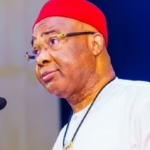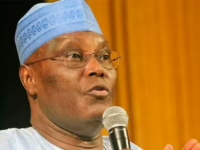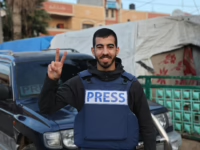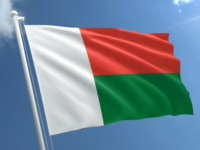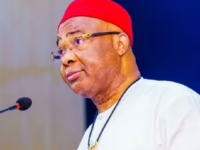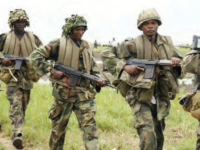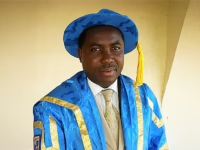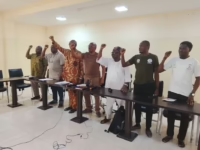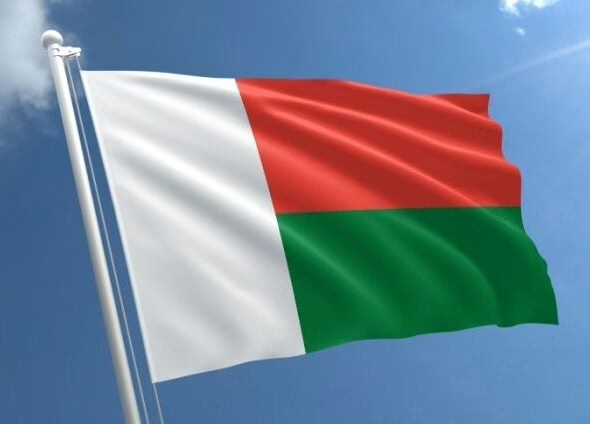Madagascar is currently facing a coup attempt as a faction within the military has seized control of the armed forces‘ leadership and threatened to overthrow President Andry Rajoelina amid widespread protests triggered by the nation’s deepening economic crisis.
On Sunday, the presidential office confirmed the coup bid, describing it as an unlawful and forceful attempt by certain military elements to usurp power, plunging the country into turmoil, according to reports from the capital, Antananarivo.
Shortly after the president’s warning, the military unit known as CAPSAT announced it had assumed command over the entire military apparatus, including the army, air force, and navy.
This same unit was instrumental during the 2009 political upheaval in Madagascar, which ultimately facilitated Rajoelina’s initial rise to power.
The unrest began on September 25 with youth-led demonstrations protesting water and electricity shortages. However, these protests have since expanded to express broader grievances against Rajoelina’s administration, including rampant unemployment, corruption, and soaring living costs.
In an official statement, President Rajoelina condemned the coup attempt, stating, “There is an ongoing effort to unlawfully seize power within the Republic’s territory, flagrantly violating the Constitution and democratic values.”
He denounced the move as a severe threat to national stability and urged all key institutions and citizens to unite in safeguarding constitutional governance and the country’s sovereignty.
CAPSAT declared the appointment of General Demosthene Pikulas as the new army chief of staff via a statement on its Facebook page.
According to AFP, the Minister of Armed Forces, Manantsoa Deramasinjaka Rakotoarivelo, endorsed this appointment, expressing his support during the ceremony installing General Pikulas.
Meanwhile, protesters have gathered for a second day in a row at the central square in Antananarivo, marking a significant milestone as they had previously been unable to access May 13 Square, a historic site of past uprisings.
One demonstrator told the BBC, “We have finally taken control of May 13 Square – the Square of Democracy.”
“This victory brings us joy and relief. Our fight will continue until President Rajoelina steps down,” the protester added.
Images show protesters celebrating their breakthrough at the main square, with some capturing the moment on their phones.
The demonstrators’ success was bolstered by unexpected backing from CAPSAT on Saturday, when some of its soldiers left their posts to join the protests.
CAPSAT also condemned the violent crackdown on protesters by other security forces.
Reports emerged of gunfire exchanges at a CAPSAT base on Sunday, following similar incidents the previous day.
CAPSAT stated that a soldier was fatally shot by gendarmes on Saturday.
Due to the escalating security concerns, Air France announced the suspension of its flights to Antananarivo until at least Tuesday.
The protest movement, known as Gen Z Mada, has primarily mobilized support through social media platforms, posing the most significant challenge to Rajoelina since his 2023 re-election.
On Saturday, the presidency reassured citizens that both President Rajoelina and the newly appointed prime minister, a military general named last week, remained firmly in control.
Some military personnel have openly sided with the protestors by leaving their barracks to support the demonstrations.
Volker Türk, the UN human rights chief, previously called on security forces to refrain from using “excessive and disproportionate force” against protesters, noting that at least 22 people have died and around 100 have been injured.
Rajoelina disputed these figures last week, confirming 12 deaths and labeling those individuals as “looters and vandals.”
Since gaining independence in 1960, Madagascar has experienced numerous political upheavals, including the 2009 protests that led to the resignation of then-President Marc Ravalomanana and the rise of Rajoelina.
Rajoelina initially governed for four years before returning to power following the 2018 elections.
Despite its wealth of natural resources, Madagascar remains one of the world’s poorest nations, with approximately 75% of its population living below the poverty threshold, according to the World Bank.
Furthermore, only about one-third of Madagascar’s 30 million residents have access to electricity, as reported by the International Monetary Fund (IMF).



